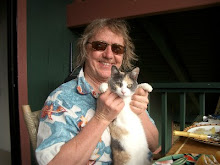Ethics is the secular loom that binds the warp and woof of different values.
I accept and honor strongly held personal beliefs and the supporting threads of like minded groups. This is what makes up the fabric of society, regardless of where each of us are coming from. Society tends to refer to these threads of like-minded character, faith, ethnicity, nationiality or shared culture of this or that group membership, 'values'.
However those threads of personal and group membership values alone do not necessarily knit with other threads beyond those who grew up close to you or are more like you. The ties that bind beyond the scope of localized and personal, are the warp and woof of secular society.
Some pretty eloquent folks in history, from a rainbow of different value groups, have pointed out that we are apparently all born with some innate human cognitive sense for registering and recognizing fair play, we all seem to embrace a universal desire for freedom to practice our born or chosen set of personal, localized, and shared group values, and we all respect and desire some sort of mitigation of equitable justice when values conflict beyond that scope. Society tends to refer to these shared underlying, global human desires for a level playing field, 'ethics'.
Rather than a 'moral dilemma' of values butting heads, or 'hypocracy' for not standing up for your values, what we usually have is a choice as to how to mitigate
differing personal values in the context of public ethics. Therefore I see no sense of contradiction, hypocracy, or conflict when our values conflict with our ethics, but rather a healthy maturity and enlightenment if we recognize and apply each within the appropriate scope. These mitigating ethics include simple rules about respecting and honoring differences, neither bullying nor shunning those who have different values, and - here's the real test - putting our personal commitment to ethics above our personal commitment to our closed set of values when we have opportunity for input to secular rules and decisions like electing politicians, passing laws, saving gas, and sitting on juries.
Each of us has a slider on which we adjust decisions based on how our sense of values and allegiance to family or clan balances against our sense of ethics, regardless of religion or creed. We each decide whether to ask what kind of decisions we're making that affect others, and whether those decisions are values based (benefit folks who grew up closer to me or more like me) or ethics based (honor some human sense of fairness and a framework for decisions that accomodates differences). To the extent we support a level playing field and honor differences without prosteletizing or expecting everyone else to change, I'd say we are being more ethical and less values bound.
The message of the enlightenment to me was that folks within and without religious affiliations recognized it is impossible to define acceptable society as just a larger group of shared values. It requires a will and a means to implement secular mitigation of differences to weave a fabric of life that includes folks who are different and still enjoy it. In that context it's not important to nitpick the differences because frankly they don't matter if we all accept the need for a level secular playing field. Is that good? If you think so, I think that's great.

1 Comments:
beliefs
1. The mental act, condition, or habit of placing trust or confidence in another: My belief in you is as strong as ever.
2. Mental acceptance of and conviction in the truth, actuality, or validity of something: His explanation of what happened defies belief.
3. Something believed or accepted as true, especially a particular tenet or a body of tenets accepted by a group of persons.
http://dictionary.reference.com/browse/beliefs
Post a Comment
<< Home